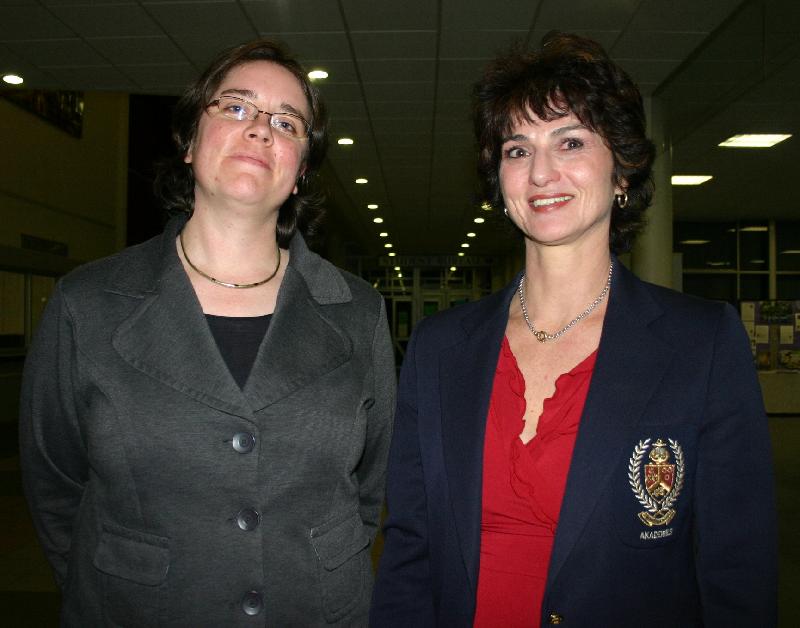
The recently held Rhodes University Community Engagement week saw the official launch of Community Engagement as a core function and a third pillar of the University alongside research, and teaching and learning.
The series of events kicked off with an exhibition at Eden Grove that showcased a number of the community engagement initiatives being run by University departments, student societies and affiliated institutes. The exhibition was opened by Dr Sizwe Mabizela, Deputy Vice-Chancellor: Academic & Student Affairs, with introductory remarks by Dr Margie Maistry, Director of Community Engagement at Rhodes.
Some of the departments that featured prominently were Psychology, Education, Chemistry, Pharmacy and Computer Science (through the Telkom Centre of Excellence), while the English Department is linked to bodies such as NELM (National English Literary Museum) and the ISEA (Institute for the Study of English in Africa), and the Journalism Department is engaged via Grocott’s Mail and Upstart.
The Centre for Social Development (CSD) chose to focus on their Preschool Student Volunteer Programme, with the Institute for Social and Economic Research (ISER) highlighting some of the research that they have been doing in and with communities. Other affiliated institutes included the Legal Aid Clinic and the Confucius Institute.
Particular outreach projects that involve Rhodes student volunteers and staff also had displays, for example the Grahamstown Feeding Scheme, the St Mary’s Day Care Centre and the Grahamstown Library.
Two lecture evenings formed part of the week’s events: a presentation by Mandy Hlengwa from CHERTL entitled Towards an Understanding of Service-Learning as a Pedagogic Tool and a double-header featuring Ms Thandi Lewin from the Office of the Minister of Higher Education and Training, and Dr Gerda Bender from the Department of Community Engagement at the University of Pretoria.
The talk by Ms Lewin, which attempted to located Community Engagement (CE) within the Higher Education landscape, prompted questions around the funding and resourcing of CE through the current funding formulas for universities, what CE means at a “scholarly” university such as Rhodes, as opposed to CE at a developmental or engaged university, whether CE is in fact a third purpose or should be interwoven with the other two key purposes of a university and even what “generation” CE is at Rhodes.
Dr Bender focused on curricular and research-related CE and spoke about curriculum and programme mapping to see where CE is appropriate in particular modules, and the importance of generating socially-responsive knowledge. She felt universities should be careful not to be viewed as service providers in the absence of public service delivery. This did not mean that voluntarism should not form part of students’ ethic, but that it should be separated from credit-bearing activities. These comments in particular elicited some debate around how not to quash a philanthropic spirit in students while at the same time being mindful of needing to move communities along the developmental spectrum.
Dr Bender stressed that integrating CE into the curriculum and research is “difficult work”, especially to ensure reciprocity, and that academic staff need to be engaged and orientated to do this on a systematic and considered basis.
Pic: From l-r: Ms Thandi Lewin and Dr Gerda Bender.
